Home>Fans, Heaters & Lighting>Is It Safe To Leave A Space Heater On When Not Home?
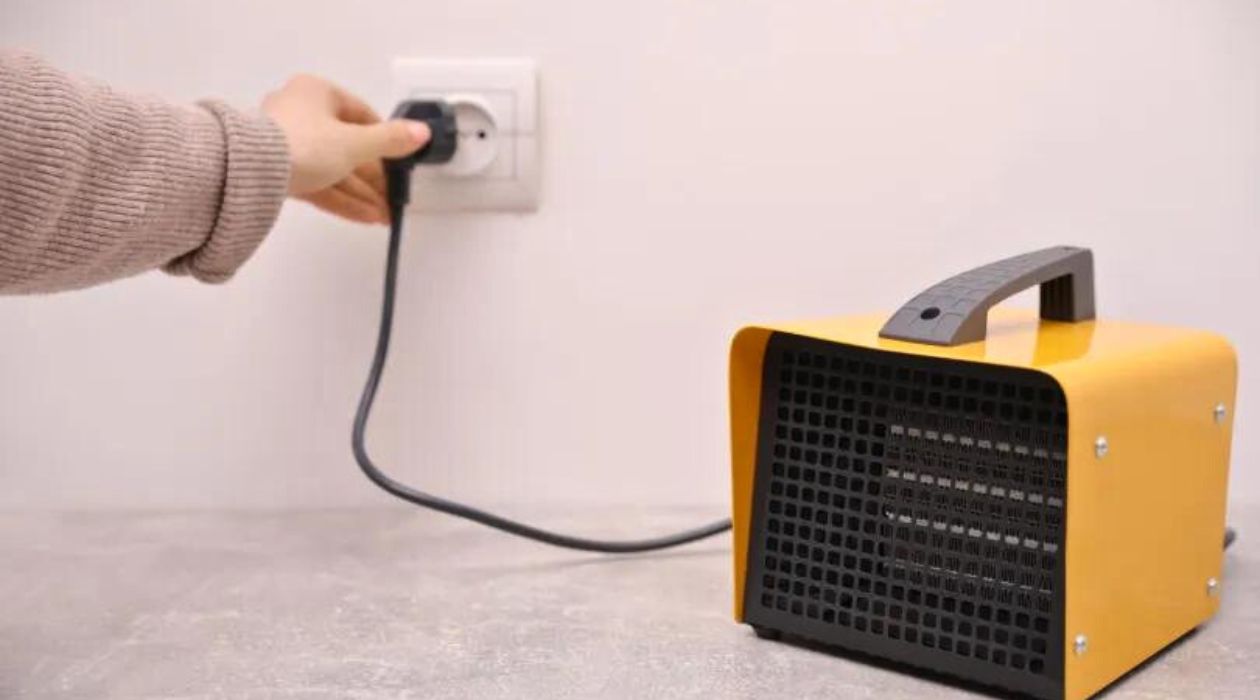

Fans, Heaters & Lighting
Is It Safe To Leave A Space Heater On When Not Home?
Modified: October 28, 2024
Discover the safety concerns of leaving a space heater on when you're not home. Read informative articles to understand the risks and precautions.
(Many of the links in this article redirect to a specific reviewed product. Your purchase of these products through affiliate links helps to generate commission for Storables.com, at no extra cost. Learn more)
Introduction
Space heaters can be a great convenience, especially during the chilly winter months. They provide warmth and comfort in specific areas of your home, allowing you to save on heating costs by only heating the rooms you’re using. However, a common concern among homeowners is whether it is safe to leave a space heater on when not at home.
While space heaters can be a useful heating solution, it’s essential to understand the potential risks involved. Leaving a space heater unattended can pose fire hazards, lead to carbon monoxide poisoning, or result in overheating and electrical issues. In this article, we will explore these risks in detail and provide safety precautions for using a space heater when away from home.
Key Takeaways:
- Prioritize safety when using a space heater by maintaining a safe distance from flammable materials, ensuring proper ventilation, and following manufacturer’s instructions to minimize fire hazards, carbon monoxide poisoning, and electrical issues.
- When using a space heater when away from home, consider setting a timer, choosing a room with minimal risks, and ensuring proper ventilation. Regularly inspect the heater and notify a trusted neighbor or family member about your usage for added safety.
Read more: When Is It Safe To Leave A Fire Pit
Understanding Space Heaters
Before discussing the safety aspects of leaving a space heater unattended, it’s important to have a basic understanding of how these devices work. Space heaters are portable devices designed to provide localized heat in small areas. They come in various types, including electric, propane, kerosene, and infrared heaters.
Electric space heaters are the most common type and typically use a heating element, such as a coil or ceramic disc, to generate heat. They require an electrical outlet and are relatively safer compared to other types, as they don’t produce open flames or emit harmful gases.
Propane and kerosene heaters, on the other hand, use fuel combustion to generate heat. Although they can be effective in heating larger spaces, they pose a higher risk of fire hazards and carbon monoxide poisoning if not used properly. Therefore, extra precautions should be taken when using these types of space heaters.
Infrared heaters, also known as radiant heaters, emit infrared radiation that directly heats people and objects instead of the surrounding air. They are energy-efficient and provide instant warmth, making them a popular choice. However, they can still pose risks if left unattended.
Understanding the type of space heater you have and its specific safety requirements is crucial in ensuring safe usage.
Potential Risks of Leaving a Space Heater On
Leaving a space heater on when not at home can pose several potential risks that should not be taken lightly. It’s important to be aware of these risks and take appropriate safety measures to avoid accidents and potential damage to your property.
Fire Hazards
One of the most significant risks of leaving a space heater unattended is the potential for fires. Space heaters can cause fires if placed too close to flammable materials, such as curtains, furniture, or bedding. Additionally, if the heater tips over, it can ignite nearby objects and start a fire.
To minimize the risk of fire, always keep flammable materials at a safe distance (at least three feet) from the heater. Make sure the space heater is on a stable surface and has a tip-over switch that automatically shuts off the device if it falls over.
Carbon Monoxide Poisoning
Another risk, particularly with fuel-burning space heaters like propane or kerosene heaters, is carbon monoxide poisoning. Carbon monoxide is a colorless and odorless gas that can be deadly in high concentrations. If the combustion process in these heaters is not adequately ventilated, carbon monoxide can build up, leading to poisoning.
When using fuel-burning space heaters, always ensure proper ventilation. Keep windows or doors cracked open to allow fresh air to circulate. It’s also crucial to have a carbon monoxide detector installed in your home and regularly check the batteries to ensure it’s functioning correctly.
Overheating and Electrical Issues
Leaving a space heater on for an extended period, especially when unattended, can also lead to overheating. Overheating can cause damage to the heater itself and potentially result in electrical malfunctions. This can increase the risk of electrical fires and other safety hazards.
To prevent overheating, always follow the manufacturer’s recommendations regarding usage time limits. If you need to leave the space heater on when not at home, consider using a timer that automatically shuts it off after a predetermined period. Regularly inspect the heater for any signs of damage or wear and tear.
It’s crucial to be aware of these potential risks and take appropriate safety precautions when using a space heater, especially when leaving it unattended. Understanding the risks can help you make informed decisions and minimize the chances of accidents or damage.
Fire Hazards
Fire hazards are a significant concern when it comes to leaving a space heater unattended. Space heaters can pose a risk of fire if not used properly or if preventive measures are not taken. Here are some important factors to consider to minimize the risk of fire.
Safe Placement
The placement of the space heater plays a crucial role in preventing fires. It’s essential to keep flammable objects and materials at a safe distance from the heater. This includes items such as curtains, furniture, bedding, and clothing. These materials can easily catch fire if they come into contact with the hot surfaces of the heater.
It is recommended to maintain a minimum three-foot clearance around the space heater, ensuring that there are no potential sources of ignition nearby. Be mindful of the airflow around the heater and avoid placing it in congested or confined spaces where the heat may build up excessively.
Tipping Over
Space heaters can present a fire hazard if they are not stable and have the potential to tip over. If a heater is knocked over accidentally, it can cause a fire by igniting nearby objects or materials. To prevent this, choose a heater with a tip-over switch that automatically shuts off the device if it falls over.
Additionally, always place the heater on a flat, stable surface to minimize the risk of tipping. Avoid placing the heater on uneven surfaces or on top of carpets or rugs that can cause instability.
Read more: How Long Can I Leave A Space Heater On
Overloading Circuits
Another fire hazard to be cautious of is overloading electrical circuits. Space heaters draw a significant amount of power, so it’s important to ensure that the electrical circuit can handle the load. Avoid plugging the heater into an overloaded circuit or using extension cords or power strips that are not designed to handle high-wattage appliances.
Use a dedicated electrical outlet for the space heater whenever possible. If you need to use an extension cord or power strip, make sure it is specifically rated for the power requirements of the space heater to avoid overheating and potential fire risks.
Regular Maintenance
Maintaining your space heater properly is essential to minimize fire hazards. Clean the heater regularly and remove any dust, debris, or flammable materials that may have accumulated on or near the unit. Follow the manufacturer’s instructions for maintenance and cleaning, and inspect the heater for any signs of damage or malfunction.
It’s also important to use the space heater according to the manufacturer’s guidelines. Avoid modifying, tampering with, or using the heater in ways that were not intended. Doing so can increase the risk of fire and compromise the safety features of the device.
By following these safety precautions and being mindful of fire hazards, you can reduce the risk of fires when using a space heater and ensure the safety of your home and loved ones. Always prioritize safety and take necessary steps to prevent accidents and potential damage.
Carbon Monoxide Poisoning
Carbon monoxide (CO) is a colorless, odorless gas that is produced when fuels, such as propane, natural gas, kerosene, or wood, don’t completely burn. It’s important to note that fuel-burning space heaters, such as those powered by propane or kerosene, have the potential to emit carbon monoxide if they are not used properly or if there is insufficient ventilation.
Proper Ventilation
When using fuel-burning space heaters, ensuring proper ventilation is crucial to prevent the build-up of carbon monoxide. Open windows or doors in the room where the heater is being used to allow fresh air to circulate and replace the potentially harmful gases. This helps to maintain a safe level of oxygen and prevent the accumulation of carbon monoxide.
It’s also important to note that using fuel-burning space heaters in enclosed or poorly ventilated spaces, such as a closed room or a garage, can significantly increase the risk of carbon monoxide poisoning. Always use these types of heaters in well-ventilated areas to prevent the gas from reaching dangerous levels.
Read more: Lights Flicker When Space Heater Turns On
Carbon Monoxide Detectors
Installing carbon monoxide detectors is essential for any home, especially when using fuel-burning space heaters. These detectors can detect the presence of carbon monoxide in the air and alert you when levels are reaching dangerous concentrations.
Place carbon monoxide detectors near sleeping areas and on each level of your home. Ensure that the detectors are properly installed, regularly tested, and have fresh batteries. In case of an alarm or if you suspect a carbon monoxide leak, immediately evacuate the area, call emergency services, and ventilate the space.
Regular Maintenance
Regular maintenance of your fuel-burning space heater is crucial to prevent carbon monoxide poisoning. Follow the manufacturer’s instructions for maintenance and cleaning, and have the heater inspected annually by a professional to ensure its safe operation.
In addition, always use the appropriate fuel for your space heater and handle it properly. Improper use of fuel or using the wrong type of fuel can increase the risk of carbon monoxide emissions. Store fuel in a well-ventilated area away from living spaces to avoid accidental leaks or spills.
By prioritizing proper ventilation, installing carbon monoxide detectors, and maintaining your fuel-burning space heater regularly, you can significantly reduce the risk of carbon monoxide poisoning. Awareness and proactive measures are crucial in ensuring the safety and well-being of everyone in your home.
Overheating and Electrical Issues
Leaving a space heater on for extended periods, especially when unattended, can lead to overheating and potential electrical issues. It’s important to understand these risks and take necessary precautions to prevent accidents and damage to your space heater and home.
Usage Time Limits
Space heaters are designed with recommended usage time limits provided by the manufacturer. It’s important to follow these guidelines to prevent overheating and potential electrical malfunctions. Prolonged usage can cause the internal components of the heater to overheat, leading to safety hazards.
Check the user manual or the manufacturer’s website to determine the recommended usage time for your specific space heater. If you need to leave the heater on when not at home, consider using a timer that automatically shuts it off after a certain period.
Regular Inspection
Regularly inspecting your space heater is essential to identify potential issues or signs of damage that may lead to overheating or electrical problems. Dust and debris can accumulate inside the heater and block the airflow, causing the device to overheat. Clean the heater regularly according to the manufacturer’s instructions to maintain optimal performance.
Inspect the power cord for any frays or exposed wires and test the plug to ensure a secure connection. If you notice any signs of damage or wear and tear, discontinue use and have the heater repaired or replaced by a professional.
Proper Electrical Outlets
Using the appropriate electrical outlet is crucial for the safe operation of your space heater. Space heaters often draw a significant amount of power, and using an improper outlet or overloading the circuit can lead to overheating and potential electrical hazards.
Always plug your space heater directly into a grounded electrical outlet. Avoid using extension cords or power strips, unless they are specifically designed for high-wattage appliances and can handle the load of your heater. Using inadequate equipment increases the risk of overheating and electrical malfunctions.
Avoiding Obstructions
Ensure that your space heater has proper airflow to prevent overheating. Avoid placing the heater near objects that can obstruct the airflow, such as curtains, furniture, or other items. Blocked airflow can cause the heater to overheat and may result in electrical issues or even fire hazards.
Allow a minimum distance of three feet around the space heater to ensure proper ventilation and to prevent any potential obstructions. This will help to maintain safe temperatures and avoid overheating.
By following these guidelines, you can reduce the risk of overheating and electrical issues when using a space heater. Regularly inspect your heater, use appropriate electrical outlets, and avoid obstructions to ensure safe and efficient operation.
Safety Precautions When Using a Space Heater
When using a space heater, it’s crucial to prioritize safety to prevent accidents and mitigate potential risks. By following these safety precautions, you can use your space heater with peace of mind:
Read more: What Is Garden Leave
Read and Follow the Manufacturer’s Instructions
Before using a space heater, thoroughly read and familiarize yourself with the manufacturer’s instructions. Every heater might have specific safety guidelines and usage recommendations that you need to follow. Pay attention to the recommended room size, power requirements, and any special instructions for ventilation or maintenance.
Place the Heater on a Stable Surface
Always place the space heater on a stable, level surface to prevent tipping. Avoid placing it on cushions, soft surfaces, or elevated structures that can cause instability. A stable heater reduces the risk of accidental falls and ensures safe operation.
Keep the Heater Clear of Flammable Materials
Maintain a safe distance between the space heater and any flammable objects. Keep curtains, furniture, bedding, and other combustible materials at least three feet away from the heater. This will minimize the risk of fire hazards and potential ignition of nearby items.
Use a Grounded Electrical Outlet
Plug your space heater directly into a grounded electrical outlet. Using extension cords or power strips that are not designed for high-wattage appliances can increase the risk of overheating and electrical hazards. A grounded outlet ensures proper electrical flow and reduces the chances of electrical malfunctions.
Never Leave the Heater Unattended
It is highly recommended never to leave a space heater unattended, especially when it’s in use. Even a momentary distraction can lead to accidents. If you need to leave the room or go to bed, turn off the heater and unplug it from the outlet. This preventative measure will eliminate any potential risks associated with unattended operation.
Use Safety Features
Many space heaters come with built-in safety features such as tip-over switches and overheating protection. Ensure that your heater has these features and that they are functioning correctly. The tip-over switch automatically shuts off the heater if it falls or is inadvertently tipped over, while overheating protection prevents the heater from reaching unsafe temperatures.
Install Smoke and Carbon Monoxide Detectors
Install smoke detectors and carbon monoxide detectors in your home, near the areas where you use space heaters. Check the batteries regularly and ensure that the detectors are functioning properly. These devices will provide an early warning in case of a fire or the presence of dangerous levels of carbon monoxide.
Keep Children and Pets Supervised
Take extra precautions if you have children or pets in your home. Never leave them unsupervised with a space heater. Ensure that they are educated about the potential dangers and teach them to keep a safe distance from the heater. Consider using a barrier or a screen to prevent accidental contact.
By following these safety precautions, you can use your space heater confidently, knowing that you have taken the necessary steps to minimize risks. Prioritize safety, be mindful of your surroundings, and always use your space heater responsibly.
Read more: Is It Safe To Cut Grass When Wet
Tips for Using a Space Heater When Away from Home
Using a space heater when you’re away from home requires extra caution and consideration. While it’s generally recommended to never leave a space heater unattended, there are instances where you may need to use it while you’re out. Here are some helpful tips for using a space heater when you’re away from home:
Set a Timer
One of the safest ways to use a space heater when you’re away is to set it on a timer. Use a programmable timer or a smart plug to automatically turn the heater on and off at scheduled intervals. This way, you can ensure that the heater runs for a specified period and shuts off before you return home.
Choose a Room with Minimal Risks
Select a room without flammable materials or hazards that can pose a fire risk. Ideally, choose a space with hard surfaces, such as a bathroom or kitchen, where there are fewer combustible items nearby. This reduces the chances of accidental ignition and minimizes the potential risks associated with leaving the heater unattended.
Keep the Heater Away from Anything that Can Ignite
Even when you’re not at home, it’s crucial to maintain a safe distance between the space heater and any flammable objects. Place the heater at least three feet away from curtains, furniture, bedding, or clothing. This precautionary measure reduces the risk of fire hazards and prevents potential ignition of nearby items.
Read more: How To Clean A Space Heater?
Ensure Proper Ventilation
Proper ventilation is essential when using a space heater, even if you’re not present. Open a window or door slightly to provide fresh air circulation, especially if you’re using a fuel-burning heater. This helps prevent the build-up of carbon monoxide and ensures a safe environment.
Regularly Inspect the Heater
Before using a space heater, and especially if you’re leaving it unattended, conduct a thorough inspection. Check for any signs of damage, frayed cords, or loose connections. Ensure that the heater is clean and free from dust and debris, as these can pose a fire risk. If you notice any issues, do not use the heater and have it repaired or replaced.
Notify a Trusted Neighbor or Family Member
If you plan on using a space heater when you’re away, it’s a good idea to inform a trusted neighbor or family member. Let them know that you’re using a space heater and provide them with your contact information in case of emergency. This way, they can keep an eye on your home and notify you immediately if anything goes wrong.
Consider Remote Monitoring
For added peace of mind, you may want to invest in a smart home security system that includes remote monitoring capabilities. This allows you to check on your home and the space heater remotely using a mobile app or online portal. Some systems also offer temperature sensors that alert you if the temperature reaches a dangerous level.
While it’s generally recommended to avoid leaving a space heater unattended, following these tips can help minimize the risks if you need to use one when you’re away from home. By being vigilant and taking appropriate precautions, you can use a space heater responsibly and prioritize the safety of your home and belongings.
Read more: How To Dispose A Space Heater?
Conclusion
Space heaters are a convenient and efficient way to add warmth to specific areas of your home. However, it’s important to prioritize safety when using a space heater, especially when leaving it unattended. By understanding the potential risks and following safety precautions, you can minimize the chances of accidents and ensure the well-being of your home and loved ones.
Fire hazards are a significant concern when using space heaters. Always maintain a safe distance from flammable materials, use a stable surface, and ensure proper airflow around the heater. Additionally, be cautious of carbon monoxide poisoning when using fuel-burning heaters. Proper ventilation and carbon monoxide detectors are essential in protecting against this silent but deadly gas.
Overheating and electrical issues can also pose risks. Follow the manufacturer’s instructions, use the heater within recommended time limits, and regularly inspect it for any signs of damage or malfunction. Choosing the right electrical outlet and avoiding obstructions around the heater can further reduce the risk of overheating and electrical hazards.
When using a space heater when you’re away from home, consider setting a timer, choosing a room with minimal risks, and ensuring proper ventilation. Regularly inspect the heater and notify a trusted neighbor or family member about your usage. If possible, consider investing in a smart home security system for remote monitoring and added safety.
In conclusion, while it is generally recommended to never leave a space heater unattended, there are circumstances where it may be necessary. By following safety precautions, being aware of the potential risks, and using common sense, you can enjoy the benefits of a space heater while minimizing the chances of accidents or damage. Prioritize safety, stay informed, and always use your space heater responsibly.
Frequently Asked Questions about Is It Safe To Leave A Space Heater On When Not Home?
Was this page helpful?
At Storables.com, we guarantee accurate and reliable information. Our content, validated by Expert Board Contributors, is crafted following stringent Editorial Policies. We're committed to providing you with well-researched, expert-backed insights for all your informational needs.
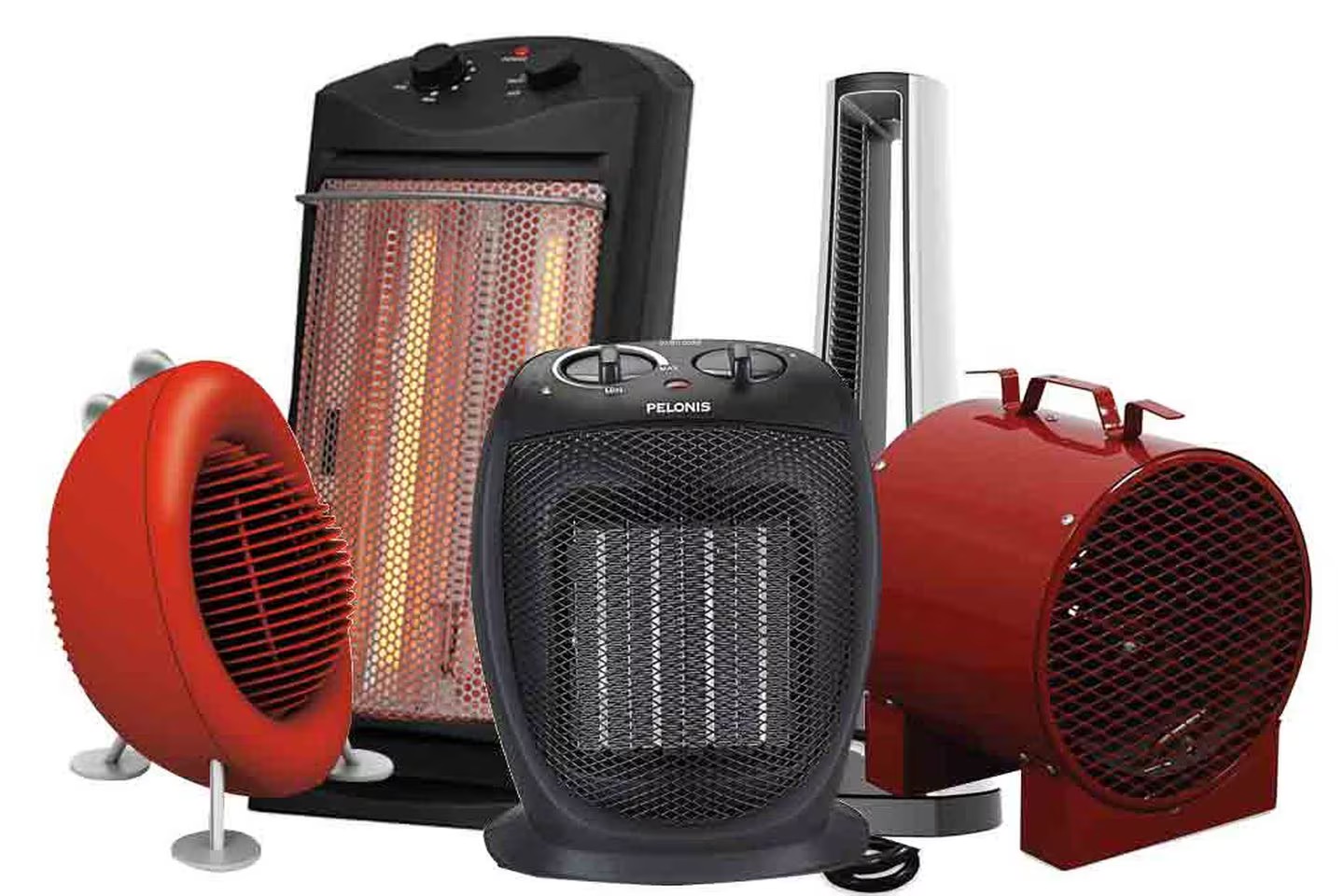
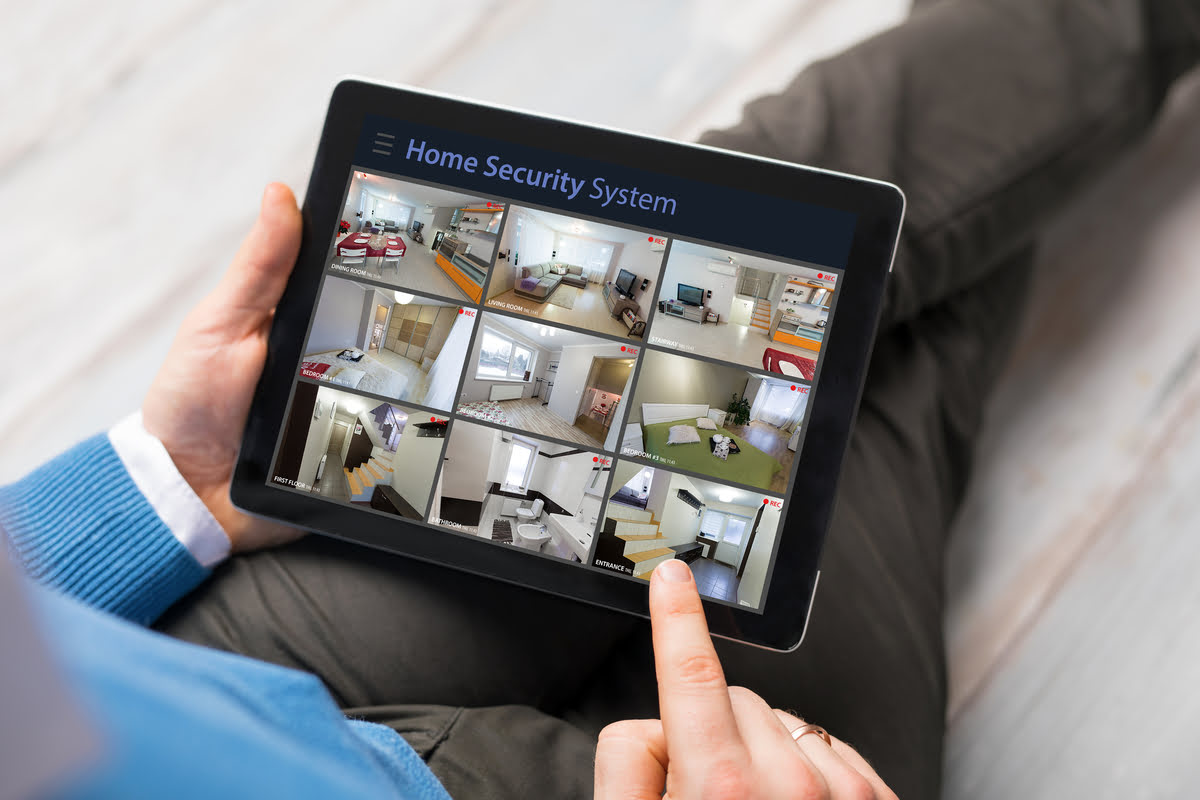
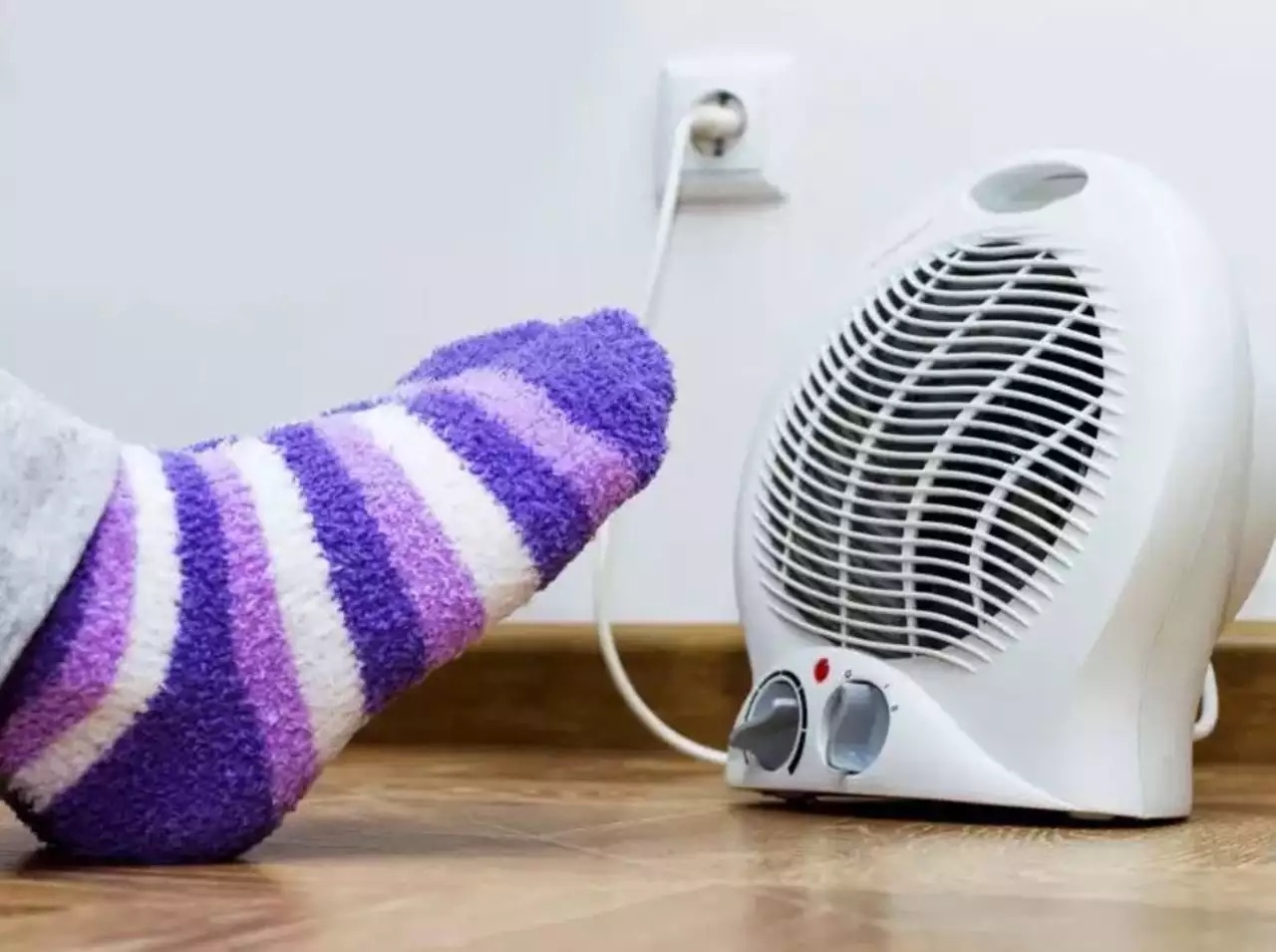
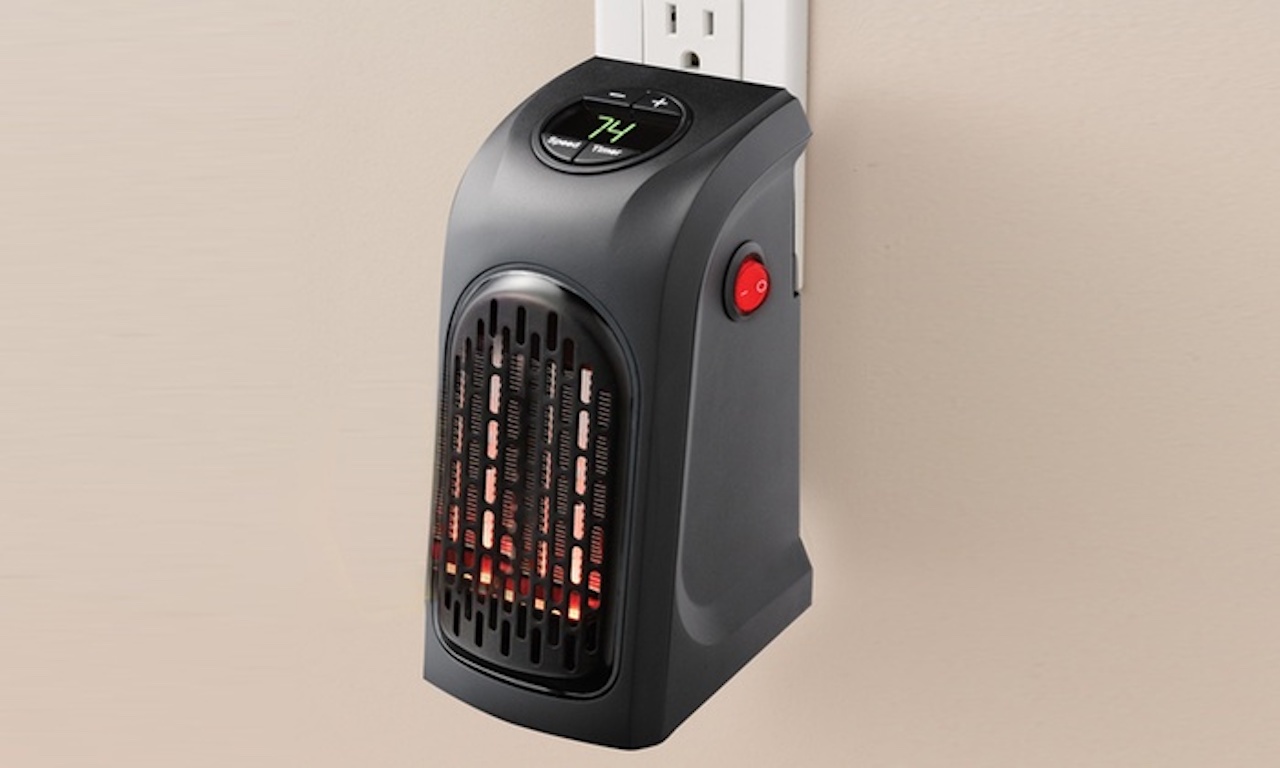
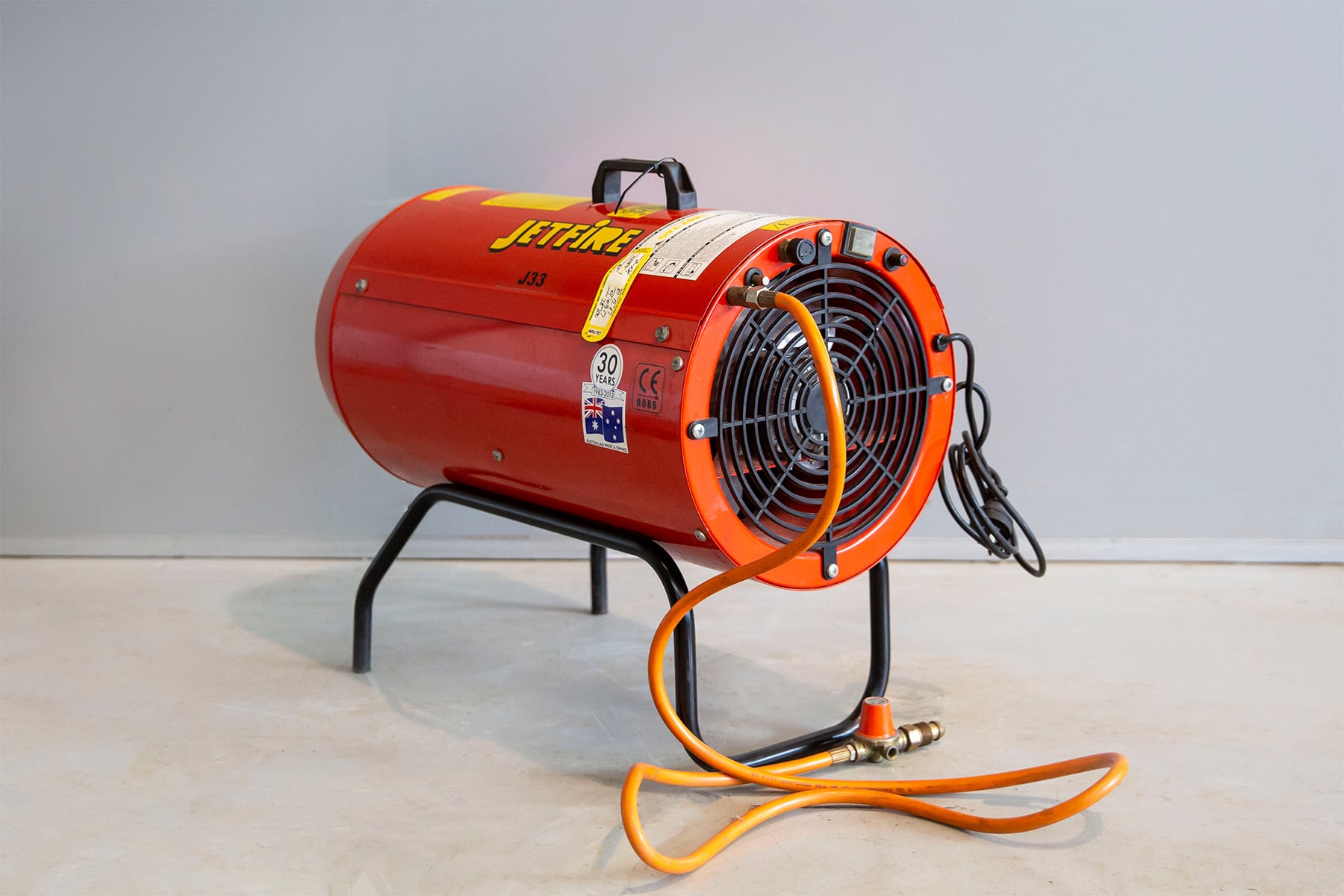
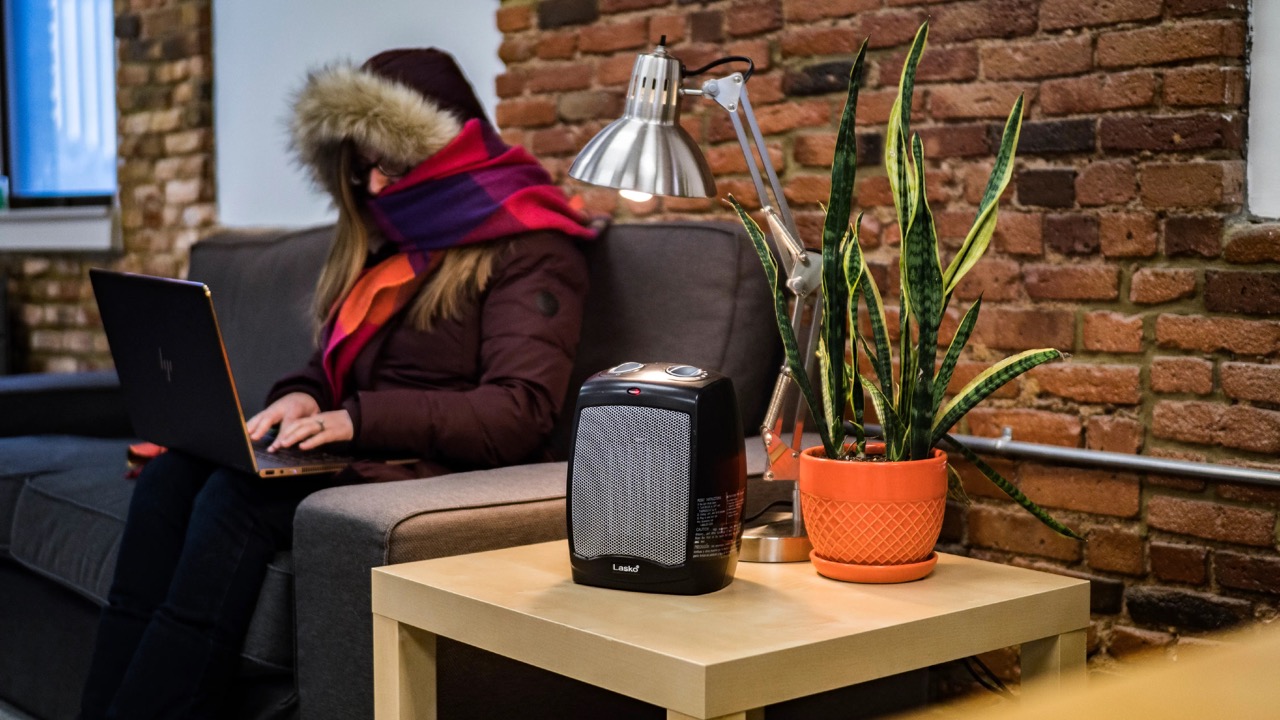

0 thoughts on “Is It Safe To Leave A Space Heater On When Not Home?”